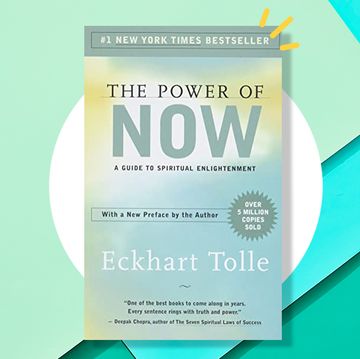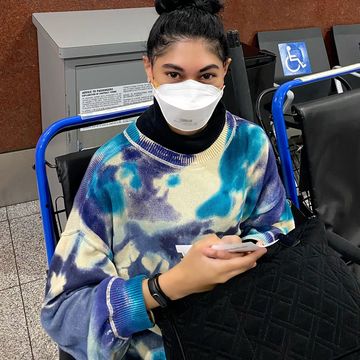The cold and flu season has been especially rough in recent years, with COVID-19 and RSV added to the mix of viruses that go around. How fast you can get back to business as usual really depends on the answer to the question, "How long is a cold contagious?" After all, you don't want to bring that misery to or get it from someone else.
The common cold is actually pretty common—adults come down with two to three colds a year on average in the U.S., per the CDC. "The common cold is an upper respiratory viral infection that may be caused by a number of different viruses," says Amy Zack, MD, a family medicine physician at Cleveland Clinic. And more than 200 viruses (!) can cause the common cold, according to the CDC.
Since colds are viral, the only way to treat the common cold is by getting a lot of rest, staying hydrated, and eating foods that support the immune system, notes Dr. Zack. An important note: Antibiotics do not treat the common cold.
And if you do get sick, you may develop a sore throat, runny nose, post-nasal drip, a mild cough, sneezing, weakness, loss of appetite, body aches, and not smelling or tasting food correctly, says Patricia Couto, MD, an infectious disease specialist at Orlando Health.
Now, let's get into the specifics of how colds spread—and how long you need to stay away from friends and family to keep 'em protected (or the other way around if a loved one is sick).
Meet the experts: Amy Zack is a family medicine physician at Cleveland Clinic. Patricia Couto is an infectious disease specialist at Orlando Health.
First, what is a cold's incubation period?
It typically doesn't take long at all for you to start feeling sick after being exposed to a cold virus. "The most common colds have an incubation period—the time after exposure and before symptoms develop—from one to three days," says Dr. Zack.
Yes, you're technically contagious at this point, even if you don't feel like you're ill. "The cold virus maybe spread during this period before the person even knows they are sick," adds Dr. Zack. "Any symptoms of a cold—congestion, runny nose, sore throat, fever, and cough—should be an indication that you might be contagious."
How does a cold spread, exactly?
Colds spread directly from people who have them through small droplets in the air when the person who has the virus sneezes or coughs. "It may also be spread by touching the face, wiping the nose, or coughing into hands," says Dr. Zack.
A cold can also be spread via close contact, especially while talking. "When you speak, mucous and saliva from the back of throat can get expelled into the air," says Dr. Couto.
Some of the best ways to prevent the spread of colds is to avoid contact with others, and to do frequent hand washing. (According to the CDC, you should scrub your hands with soap and water for 20 seconds.) You can also opt to use hand sanitizer. Dr. Couto prefers hand washing, since the water "drags" viral particles off the skin. And, of course, wearing masks is also a very effective way to decrease the risk of spreading or contracting a cold.
How long should you stay away from someone with a cold?
If you really want to avoid getting sick yourself, you'll need to stay away for a decent amount of time. "Anyone with a cold may be contagious while they have symptoms, and anywhere from one to two weeks overall," says Dr. Zack. "It is best to wait at least 72 hours after symptoms have resolved to resume contact."
And if you develop cold symptoms, it is best to stay home and rest, especially to avoid spreading it to others and allowing yourself time to get better. "There are a number of over-the-counter medications to treat cold symptoms," says Dr. Zack. "Be sure to contact your doctor prior to taking if you have other medical illnesses or take prescription medication."
Emily Shiffer is a former digital web producer for Men’s Health and Prevention, and is currently a freelancer writer specializing in health, weight loss, and fitness. She is currently based in Pennsylvania and loves all things antiques, cilantro, and American history.
Jackie Lam is the senior health editor at Women’s Health where she oversees health and weight loss content for the website and the Mind section of the print magazine. Originally from Hong Kong, she’s a journalist with more than 10 years of experience and a proud graduate of Cornell University and the Medill School of Journalism at Northwestern University. When she’s not at her laptop, she can be found experimenting with Japanese recipes in her kitchen with her husband as her main taste tester, discovering the latest in K-Pop, and dreaming up her next trips to Japan.












